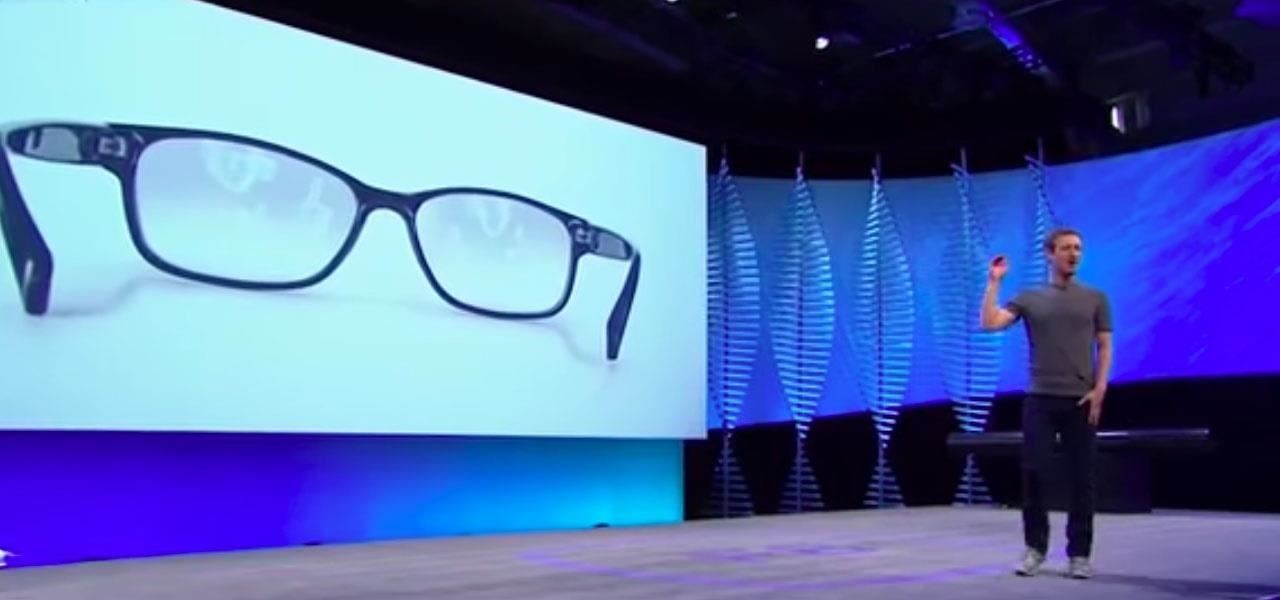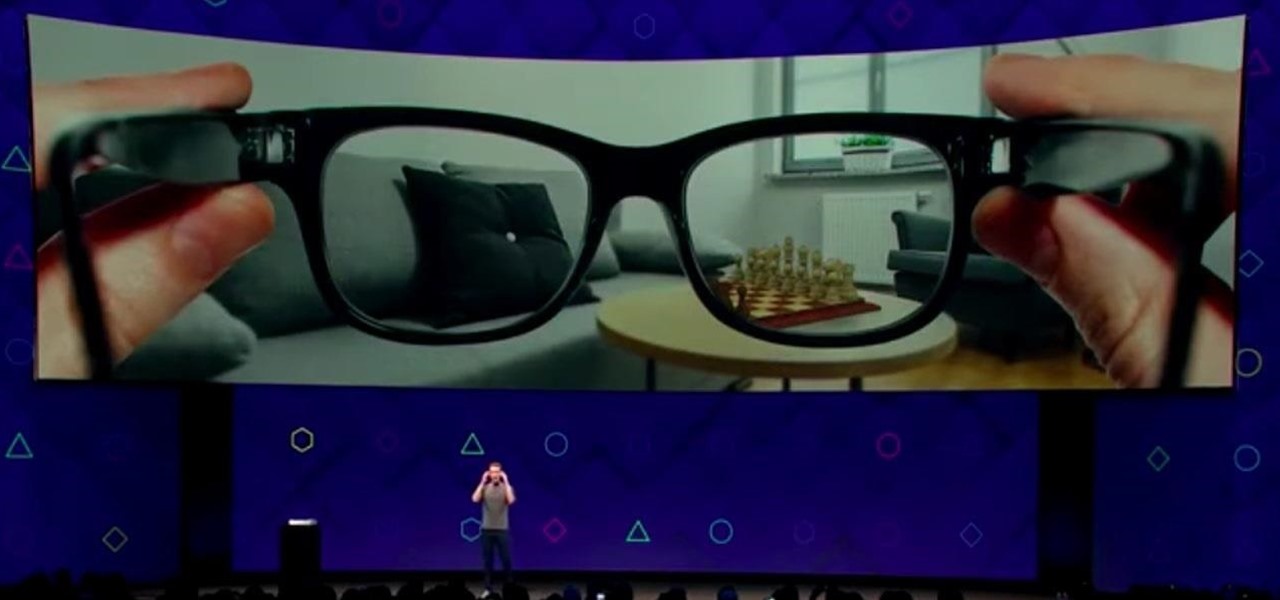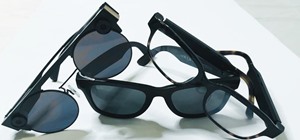Next to Apple, Snap is currently one of the most important companies on the planet in terms of delivering products that are moving augmented reality into the mainstream. That's why it's no surprise that Facebook, which is also focused on AR and tried to acquire the company for $3 billion several years ago, duplicates many of the smaller company's features.
But while many in Silicon Valley have whispered loudly about Facebook's Snapchat-copying moves, what does come as a surprise is that Facebook's co-founder, Chris Hughes, is now leveling the same charge at the company, in a very public fashion.
In a scathing editorial published in The New York Times on Thursday, Hughes, who shared a dorm room and later lived with Zuckerberg during the early days of Facebook, calls for Facebook to be broken up by the US government. The break-up, as envisioned by Hughes, would separate Facebook from Instagram (home to many of Facebook's Snapchat copies) and WhatsApp.
"As a result of [Facebook's dominance], would-be competitors can't raise the money to take on Facebook. Investors realize that if a company gets traction, Facebook will copy its innovations, shut it down or acquire it for a relatively modest sum," writes Hughes.
"So despite an extended economic expansion, increasing interest in high-tech start-ups, an explosion of venture capital and growing public distaste for Facebook, no major social networking company has been founded since the fall of 2011."
Although Hughes' comments can be applied to scores of smaller startups in competition with Facebook, the best example of Hughes' assertion is Snapchat. After Snapchat founder Evan Spiegel reportedly turned down Facebook's $3 billion acquisition offer, Facebook began gradually copying many of Snapchat's features for its Facebook and Instagram products. And while Snapchat is still in business, the company has nevertheless experienced mounting pressure in the wake of its decision to spurn Facebook's offer.
Some have cited company culture and strategic blunders as part of the problem, but when the biggest social network on the planet starts copying your core features, many of which revolve around making augmented reality easy and fun for mainstream users, that has to be factored into part of the equation tallying up the company's struggles.
"Facebook's version of Snapchat's stories and disappearing messages proved wildly successful, at Snapchat's expense," writes Hughes. "At an all-hands meeting in 2016, Mark told Facebook employees not to let their pride get in the way of giving users what they want. According to Wired magazine, 'Zuckerberg's message became an informal slogan at Facebook: 'Don't be too proud to copy.''"

But the one thing missing from Hughes editorial — which has rocked Silicon Valley due to his intimate familiarity with and a direct hand in building Facebook — is any mention of Facebook's Oculus. There's no mention of VR or AR at all in the editorial or Hughes' media blitz today. Sure, Oculus doesn't have the number of users present on Facebook's Instagram or WhatsApp, but it has the potential to impact just as many, if not more, users in the future. Currently, much of the external chatter about Oculus is about VR, but Facebook has repeatedly made it known that its Oculus team is developing an AR smartglasses product.
If you thought the privacy and data sharing practices of Zuckerberg's companies were troubling in non-immersive apps like Facebook, Instagram, and WhatsApp, those concerns would likely explode by several orders of magnitude when Facebook's users are wearing always-on AR smartglasses developed by Oculus. Combined with AR cloud technology, the potential for Facebook to harness its now-sophisticated data mining and data exploiting practices is far more significant in the arena of AR.

Since Hughes left Facebook well over a decade ago, he can be excused for not being as aware of Facebook's 2014 acquisition of Oculus for $3 billion, and what it means. But insiders in the AR space are aware of what's developing at Facebook, and one thing is clear: If Facebook is allowed to behave in the wearable AR space as it has with its existing core products, the data exploitation will be unprecedented.
So far, Facebook's privacy and data handling of its Oculus users in VR appears to be mostly above board and harmless, as far as we know. But on some level, that niche group of enthusiastic VR users (myself among them) are just beta testers for what will be possible on a more massive scale with Oculus AR software and hardware products.

Given the fact that Oculus isn't even in Hughes' sights, much less the government's, if a Facebook breakup does occur, there's a good chance that Oculus might be unaffected. Which is remarkable, since that's where Facebook's longer term, much more significant growth may lie in the coming years as we all begin to slip on a pair of AR smartglasses daily.
During a 2017 speech, Zuckerberg said he wanted to help bring 1 billion people into VR. If you're intimately familiar with VR, it's worth considering what that statement really means. As is, VR is growing and will continue to gain new, enthusiastic users. But because it's a technology that (even with Oculus Quest), like laptop computers, requires you to remain relatively stationary during use, there's a ceiling on its scale compared to mobile devices like smartphones and, yes, AR smartglasses, which will eventually be easier to use for long stretches than even smartphones.
So if Zuckerberg is looking for 1 billion VR users, how many mobile AR users do you think he's planning for? Since about 96% of Facebook's roughly 2.38 billion users are mobile, well, he's probably looking for a lot more than 1 billion users for his mobile AR product.

What happens when the data collection suction hose wielded by Facebook is pointed not at your browser or smartphone, which you occasional walk away from or put down, but at your eyes and face via AR smartglasses? Facebook recently showed off a stunning demonstration of virtual avatars that can mimic your facial expressions in real time in VR. As a tool of social connection, the possibilities are astounding. As a data collection tool, delivering millions of bits of information about user intent, emotional state, desire, and tastes, it's basically the holy grail of advertising, which is how Facebook makes its money.
It would be naive to think these avatars won't eventually be introduced into Facebook's AR platform as well. To be clear, these concerns aren't limited to Facebook's AR efforts. As I've written recently, the AR clouds offered by a wide range of startups and institutional players will challenge our ability to manage privacy and data security like never before.

Overall, Hughes' editorial is a shocking rebuke from a person best qualified to lob such critiques at Facebook. But it's missing a central component of Facebook's future that will have far greater reach than the web or smartphones — augmented reality.
Is breaking up Facebook the answer to the many privacy and data handling issues the company faces? Perhaps. But if you ignore the future that Facebook is cooking up at Oculus Research (aka Facebook Reality Labs), it won't really matter over the long term.

Zuckerberg bet on his initial vision of the future of social networking on the web over his desire to complete his Harvard education. Then Zuckerberg bet $3 billion on the future of immersive computing, long before most had ever even experienced AR or VR. So, in that respect, whether regulation and divestment comes or not, if Hughes' and others' pushing for a broken up Facebook doesn't include Oculus, Zuckerberg still wins.
The only question now is how that win will play out — with the scrutiny of government regulators, or in relative obscurity, because many of the crucial players in government and Silicon Valley are still not aware of the coming tidal wave of data that AR smartglasses will deliver.
Just updated your iPhone? You'll find new features for Podcasts, News, Books, and TV, as well as important security improvements and fresh wallpapers. Find out what's new and changed on your iPhone with the iOS 17.5 update.

























Be the First to Comment
Share Your Thoughts